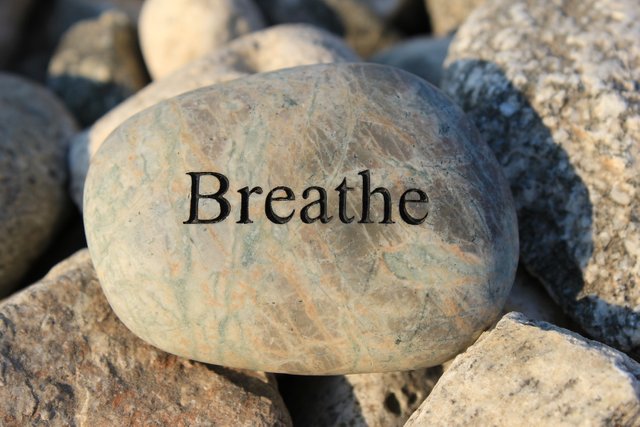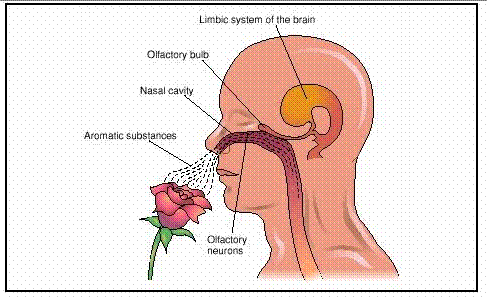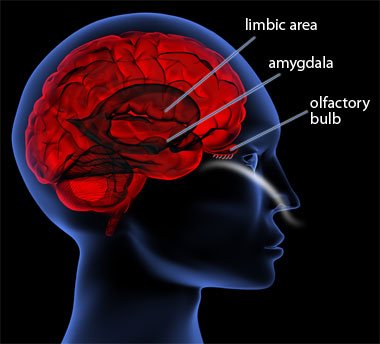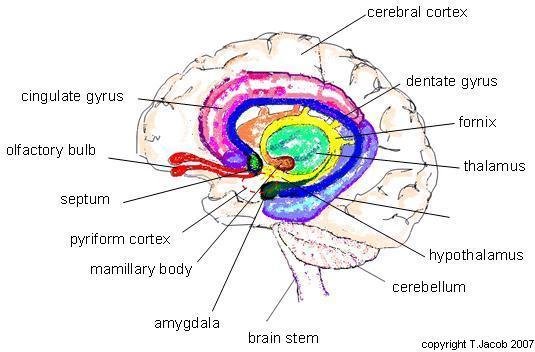Breathing and Memory, is there a connection?

Img Source: www.burningnightscrps.org/wp-content/uploads/2014/08/Breathing-Exercises.
Breathing is the most important function in life. Without this oxygen intake and breath, we seize to exist in a matter of minutes (and this is for those who are trained to hold their breath for long periods of time).
So, this is obvious!
Something that isn't obvious though is how researches have found a link between proper breathing and memory. Who would of thought, the way you breath actually affects your memory. Let me explain.
The whole process of inhaling and exhaling oxygen through your lungs is responsible for producing life-giving, oxygen-rich blood to your vital organs in order for them to invigorate and allow you to function. Pretty simple right? Well there's more.
It is a known fact that certain smells and aromas are linked to emotions and memories. Surely we have all experienced this once in our life. Apple pie - grandma's cooking, soft sweet perfume - current or ex girlfriend, grilled rib steak - barbecue at super bowl party etc. etc. So far so good for the pleasant aromas.
There are also those unpleasant aromas and scents that bring on unpleasant emotions and memories as well. Yin & Yang right! Well I'm not about to list any, don't want to rehash or open any old wounds. A little compassion never hurts!
Another interesting fact that needs attention is that for thousands of years, indigenous and non-indigenous cultures have place a great importance on rituals involving breathing.
A group of researchers from The Journal of Neuroscience put together a study regarding the link between nasal breathing and why odors and scents seem to have emotional and memories associated to them.
Through several EEG's and a collection of data collected from patients in the test group, they came to several conclusions and one which stood out as the most important. They found that there is a distinct finding - nasal breathing (breathing through the nose) affects the human brain differently than mouth breathing.
They found that nasal breathing had a huge impact on our piriform cortex, amygdala (fear/emotion) and hippocampus (memory/learning). When mouth breathing was followed, they noticed the complete opposite.

Img Source: bio9termproject.weebly.com/uploads/5/9/4/1/5941787/8360677.gif?358
Now it's a known fact that when we are in a relaxed state, our breath is slow and deep. When we are in a state of panic/fear/anxiety, we tend to hold our breath. Therefore, we know instinctively that our emotions regulate our breathing patterns. However, what we didn't know is that our emotions, which affect our breathing pattern also affect our cognitive abilities, mainly our memory and recall.
It was, and still is common knowledge that breathing is strictly for survival and oxygen supply. Now this study goes one step further to show us that breathing patterns and habits go one step further. In a nut shell, our breathing patterns subserve more than simply supplying oxygen.
The way the process works is simple. Nasal breathing coordinates our brain's electrical signals in what is called the olfactory cortex. From here it is then processed by our emotional center - known as the amygdala. Upon being processed by the amygdala, it is then sent to the hippocampus, which is responsible for learning/memory & emotions. Another interesting pint is that even though these researchers were trying to find the correlation between scent/aromas and emotions/memory, they discovered that in the absence of any scent or aroma, our nasal breathing still influences our memory and emotions.

Img Source: www.cosmichealth.co.uk/images/aromatherapy.gif

Img Source: williambrownscienceoflife.com/wp-content/uploads/2012/01/Olfactory-Bulb.jpg

Img Source: classconnection.s3.amazonaws.com/635/flashcards/542635/jpg/limbic-system1306013083110.jpg
With all the breathing techniques out there (yoga, mindfulness, mediation etc.) that focus on the inhale/exhale dynamics of the breathing cycle, the scientists concluded that the inhale is actually the most important part. According to the study, the inhales is where the memory and emotion are truly affected.
If you don't think this is plausible, just think of one example in your daily life. Think about when you are in deep thought or contemplating before responding to a question being asked. Don't you normally pause and reflect on the question and take a deep breath? I know I do!
So what can we take from all this? Well many things or nothing. Personally though, I know that I will be incorporating more nasal breathing in my daily activities. If you have any doubts, try to consciously inhale through your nose when trying to remember a phone number or when trying to learn something new, who knows you may be pleasantly surprised.
Before I conclude, I just want to add that nasal breathing is also linked to calming the sympathetic nervous system (fight or flight) and enhances the parasympathetic nervous system, which is linked to better cardiovascular health and immunity. If you feel like further researching this, look into "buteyko" method of breathing.
https://en.wikipedia.org/wiki/Buteyko_method
http://articles.mercola.com/sites/articles/archive/2013/11/24/buteyko-breathing-method.aspx
Please feel free to upvote, comment and follow me. Cheers.